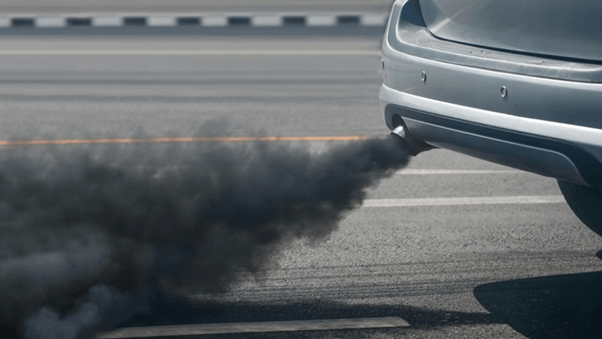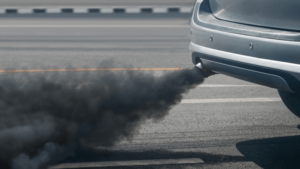Introduction
Black smoke from diesel engines is a common issue that indicates incomplete combustion. This can result from various factors related to air intake, fuel supply, or engine condition. Identifying the root cause is essential for effective troubleshooting. This article provides an in-depth analysis of the causes of black smoke in diesel engines and offers practical solutions.

What Causes Black Smoke in Diesel Engines?
Insufficient Air Intake
Air intake problems can significantly impact combustion efficiency. Common causes include:
- Dirty or Clogged Air Filters: Restricted airflow prevents the engine from receiving sufficient oxygen.
- Blocked Intake Pipes: Obstructions or deformities in air pipes reduce air supply.
- High Intake Air Temperature: Elevated air temperature reduces oxygen density, leading to incomplete combustion.
Fuel Supply System Issues
Faults in the fuel supply system often lead to improper fuel delivery and mixing. These issues include:
- Dripping or Poorly Atomized Injectors: Excess fuel is not properly atomized, resulting in inefficient combustion.
- Incorrect Injection Timing: Early or delayed fuel injection disrupts the combustion cycle.
- Worn Injection Pump Components: Damaged or worn pump elements affect the fuel delivery rate and pressure.
Engine Condition
The physical state of the engine plays a critical role in combustion:
- Cylinder Compression Loss: Worn cylinders or leaking seals reduce compression, making combustion less effective.
- Improper Valve Clearance: Incorrect adjustment affects exhaust and intake, leading to air-fuel imbalances.
- Damaged Combustion Chambers: Poor chamber conditions hinder proper fuel and air mixing.
Common Symptoms and Diagnoses
Symptom 1: Black Smoke on Startup
When an engine emits black smoke during startup but fails to run, it typically indicates a fuel or air issue before combustion begins.
Potential Causes:
- Incorrect injection timing.
- Worn injector components causing fuel leakage.
- Blocked air intake or dirty filters.
- Insufficient cylinder pressure.
Diagnosis:
- Check the air intake system for obstructions or damage.
- Verify injector spray patterns and pressures on a test bench.
- Measure cylinder compression to ensure it meets specifications.
Symptom 2: Engine Runs Unevenly and Emits Black Smoke
Continuous black smoke during operation, especially with uneven engine performance, indicates ongoing combustion issues.
Potential Causes:
- Excessive fuel supply to one or more cylinders.
- Faulty injectors with poor spray quality or sticking needle valves.
- Worn piston rings or valve seals causing low compression.
Diagnosis:
- Perform a cylinder cut-out test by isolating individual injectors to identify faulty cylinders.
- Check injector nozzles for clogging, wear, or poor atomization.
- Test compression in all cylinders and inspect pistons and valves for wear or leakage.
Other Contributing Factors
Exhaust Restrictions
Blocked exhaust systems or damaged silencers can lead to higher back pressure, reducing the efficiency of air intake and causing black smoke.
Subpar Fuel Quality
Using low-grade or incorrect diesel for the engine type can impair combustion. Always follow the manufacturer’s recommendations for fuel type and grade.
Turbocharger Issues
Faulty turbochargers may fail to provide adequate air pressure, leading to air-fuel imbalances. Inspect the turbocharger for damage or malfunction.
Solutions to Reduce Black Smoke
Air Intake System
- Replace dirty or damaged air filters.
- Clear blockages in air intake pipes.
- Ensure proper maintenance of the intake system to prevent future issues.
Fuel System
- Calibrate injection pumps to ensure accurate fuel delivery.
- Test and clean injectors to maintain proper atomization.
- Adjust fuel injection timing to match engine specifications.
Engine Maintenance
- Regularly check and adjust valve clearances.
- Replace worn piston rings, valves, or gaskets to restore cylinder compression.
- Inspect and repair combustion chambers if necessary.
Exhaust and Turbocharger
- Clean exhaust pipes and ensure there are no obstructions.
- Maintain turbocharger components to ensure efficient air supply.
Conclusion
Black smoke from diesel engines is a symptom of incomplete combustion, often caused by air intake, fuel delivery, or engine condition problems. Addressing these issues requires systematic diagnosis and regular maintenance. By ensuring optimal combustion conditions, not only can black smoke be reduced, but engine performance and fuel efficiency can also be improved.

